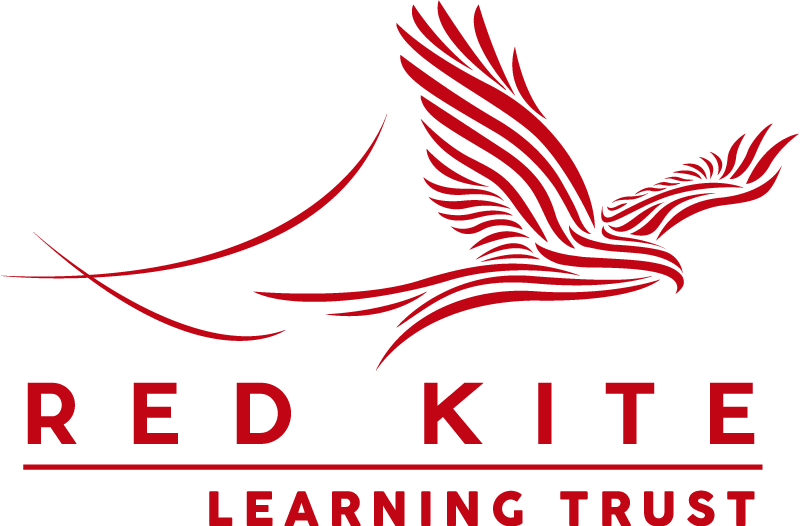Disability Equality Scheme
- School Ethos, Vision & Values
The school is committed to ensuring equal treatment of all its employees, students and any others involved in the school community, with any form of disability and will ensure that disabled people are not treated less favourably in any procedures, practices and service delivery.
This school will not tolerate harassment of disabled people with any form of impairment and will also consider students who are carers of disabled parents.
This links to Rossett’s Equality Diversity and Community Cohesion Policy
1.1 What do we understand by “disability”?
“Disability is a physical or mental impairment which has a substantial and long-term adverse effect on a person’s ability to carry out normal day-to-day activities” (DDA 1995 Part 1 para. 1.1.)
This definition was amended and broadened in December 2005 under the 2005 Disability Amendment Act:-
- People with cancer or surviving cancer are now included, as are people with HIV and Multiple Sclerosis from the point of diagnosis
- For a mental impairment the need for it to be clinically well recognised has been removed.
The Disability Equality in Education (DEE) recommends that all students with SEN and those with long term medical needs be treated as disabled for the purposes of the Act and for equality. This is in addition to all students with long-term impairments, which have a significant impact on their day-to-day activities.
Rossett uses the “Social Model of Disability” as the basis for its work to improve equality for and tackle discrimination against disabled people.
For other definitions see the Disability Rights Commission website or the SEN Code of Practice.
This school understand that the definition of disability under the Act is different from the eligibility criteria for special educational needs provision. This means that disabled students may or may not have special educational needs. Rossett recognises that social, educational and behavioural difficulties are part of this definition.
1.2 Strategic Priorities
This duty fits the strategic priorities of the school as central to our ethos is social inclusion and ensuring that all students achieve the best results possible.
1.3 Strengths & Weaknesses
We have reached Inclusion mark level 4 and have been identified as an Enhanced Mainstream School (SpLD) – previously we have gained the Dyslexia quality mark. The examination performance of SEN students are excellent. The school site is on different levels and it does make it difficult, although not impossible, for wheel chair access.
- The General Duty
We will actively seek to:
- promote equality of opportunity between disabled persons and other persons
- eliminate discrimination that is unlawful under the Act
- eliminate harassment of disabled persons that is related to their disabilities
- promote positive attitudes towards disabled persons –This means not representing people in a demeaning way, and it also means not pretending they don’t exist and not representing them anywhere at all.
- encourage participation by disabled persons in public life – it is also important to respect the wishes of disabled children in an educational setting so that they do not feel pushed into activities they do not wish to take part in.
- take steps to take account of disabled persons’ disabilities, even where that involves treating disabled persons more favourably than other persons.
(DDA 2005 S.49A)
- How we will meet the General Duty & Specific Duty
- The Disability Equality Scheme provides us with a framework for integrating disability equality into all aspects of school life and demonstrates how we are seeking to meet the specific duty.
- The Enhanced mainstream provision has increased access to the curriculum for our students.
- The Director of Inclusion & Access (SENCO) regularly meets with students with disabilities to ascertain what else we might do to assist them.
- We have recently improved signage around the school.
- The Sports faculty has a specific brief to encourage participation from those with difficulties.
- Feedback from our bi-annual survey indicates that students are able to participate and that they excel within the environment.
3.1 Involvement of Disabled People in Developing the Scheme
- Rossett School has strong links with Henshaws (Society for the Blind) which have enabled our students to have a better understanding of the difficulties of those with visual impairment and wheel chair users. This has helped to develop this policy to try to make our site more accessible for all.
- All our class lists indicate the SEN/disability for each child; the details of which can be accessed on the shared area for staff.
- We have taken feedback from parents with disabilities (hearing impaired and wheel chair users). In both cases we have made special arrangements to ensure that parents have the same access to information and teachers as other parents.
- This is discussed regularly with students through the Student Council and discussions with the Director of Access & Inclusion.
3.2 Developing a voice for disabled students, staff and parents/carers
This scheme is monitored by the student body via the Student Council and we take feedback from our bi-annual parent survey.
3.3 The Governing Body
- Details of members of the governing body are on the school web site.
- When vacancies become available members endeavour to find representatives from all walks of life.
3.4 Removing barriers
- Communications are increasingly web based with the use of email to communicate with parents eg the weekly Rossett News, which is also available on line.
- The use of twitter is also increasing.
- For those parents who prefer paper copies if letters etc, these are available and may be provided in large print and other languages if necessary.
3.5 Disability in the Curriculum, including teaching and learning
- As part of our PSHEE and Citizenship programmes these issues are covered to encourage all our students to develop positive attitudes.
3.6 Eliminating harassment and bullying
The school’s Equality, Diversity and Community Cohesion policy deals with this aspect. It has been endorsed by the Student Council and governing body.
3.7 Reasonable Adjustments
- All out of school activities and trips are available to all students regardless of their disability. Special arrangements are put in place to ensure that every child can participate.
- Where necessary extra breaks are given within school to accommodate disabilities.
3.8 School Facility Lettings
- Rossett has an extensive Extended Schools provision and we can offer disabled parking spaces to accommodate this and other events which take place throughout the year.
3.9 Procurement
- The catering team are very aware of any dietary needs of individual students and staff – for example wheat/nut allergies. They have photographs of those concerned so that there is no confusion.
3.10 Information, Performance and Evidence
We collect evidence from:
- The bi-annual parental survey
- The Year 7 parental survey
- Letters and emails from parents and visitors
- The Student council
We take all the information seriously and act on it wherever we can.
- Student Achievement
Our student tracker, special needs register and year files have extensive information regarding students in all categories. We monitor and analyse after every learning cycle to ensure that any underachievement is identified and acted upon.
- Learning Opportunities
- The breadth and depth of our vocational offer and other opportunities at Rossett mean that we are confident that every child has an appropriate curriculum offer.
- The IGEN team prioritise those students with particular needs and ensure that they have the appropriate care support and guidance. The 14-19 area learning partnership means that we have links with other schools and the college to ensure an even broader curriculum than in the past.
- Admissions, Transitions, Exclusions
- Our exclusion figures are regularly monitored and show that children with disabilities are not over represented.
- We may receive in year transfers who are SEN&D students.
- Social Relationships
The relationships between all groups of students is excellent as evidenced by our parental surveys, feedback from the Student Council and our exclusion figures.
- Employing, promoting and training disabled staff
Rossett School’s recruitment policy includes monitoring all appointments for a variety of factors such as age, ethnicity and disability. We currently have one member of staff who has a disability. He has been supported through a number of CPD programmes.
3.11 Impact Assessment
- We ask for regular feedback from students and parents and adjust learning plans accordingly. For example we allow students to access The Bridge (our inclusion unit) at breaks and lunchtimes, as needed, for ‘quiet’ times or other support as necessary.
- We can assess the impact of our strategies by analysing our examination statistics each year and making the appropriate interventions.
- All staff have received training on a number of disabilities such as ADHD, Asperger Syndrome, Dyslexia, Dyspraxia, Epilepsy. For most of this we have engaged the services of NYCC specialists
3.12 Reviewing/Monitoring
The scheme is discussed at SLT and taken to Governing Body every three years for review.
These are the steps we will to meet the Duty. The action plan should also include the priorities of disabled people consulted.




















